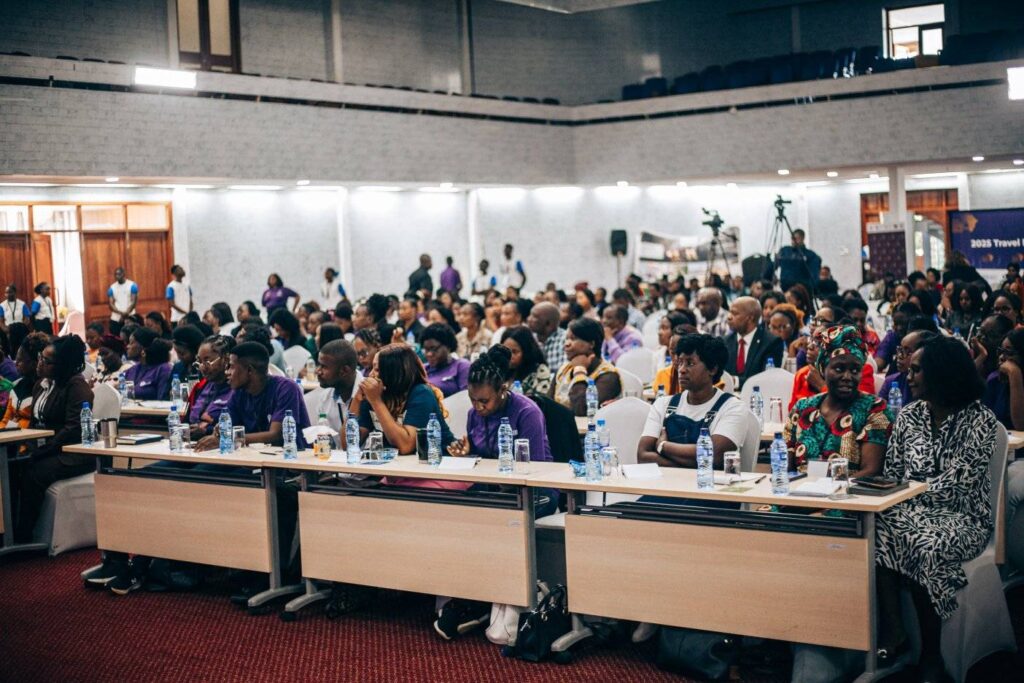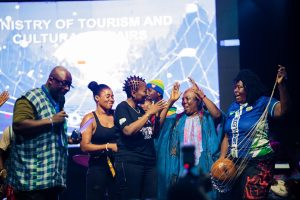The panel discussing “Bridging Education and Industry in Tourism and Hospitality” at the ongoing Travel, Hospitality & Tourism Education Summit in Lusaka, brought together a cross-section of experts from academia, international organisations, and industry to confront one of tourism’s greatest challenges: the widening gap between what is taught in the classroom and what is required on the job.
Moderated by Ms Mulemwa Moongwa of the Zambia Institute for Tourism and Hospitality Studies (ZITHS), the session featured Prof. Nellie Swart of the University of South Africa (UNISA), Mr Todini Marecha from the International Labour Organisation (ILO), Chef Martin Kobald of World Chefs, and Mr Laurent Schatzman of the Swiss Education Group.
The conversation opened with a candid assessment of the disconnect. Many tourism and hospitality educators, the panellists noted, lack direct industry experience, limiting their ability to adequately prepare students for real-world demands. Infrastructure challenges, outdated curricula, and limited funding only compound the issue. Yet the need to realign education with industry requirements has never been more urgent, particularly in a post-pandemic world where tourism is rapidly evolving.
“We cannot continue to teach hospitality purely from theory,” said Prof. Swart. “Educators must have an understanding of the operational side – what it’s like behind the front desk, in the kitchen, or running a guest experience.”
Mr Marecha emphasised the ILO’s focus on skills development through public-private collaboration, stressing that building sustainable career pathways begins with industry involvement at the curriculum level. “Tourism must be positioned not just as a job but as a long-term profession with growth potential,” he said.
Chef Kobald offered the industry’s viewpoint, passionately advocating for mentorship and practical exposure. “You don’t start as a chef – you work your way up. That’s the story students need to hear. We need to build systems that celebrate growth, from dishwasher to general manager,” he explained.
The discussion also focused on reshaping societal perceptions of tourism and hospitality careers. “Too often, tourism is viewed as a fallback,” Schatzman observed. “We need to change that narrative by highlighting the sector’s global opportunities, entrepreneurial potential, and room for advancement.” The panel cited examples from Kenya and South Africa where tourism has been integrated into school curricula, sparking interest from an early age.
Professional bodies were recognised as key allies in this journey, especially in upholding standards, encouraging mentorship, and promoting lifelong learning. Chef Kobald described efforts within World Chefs to connect professionals with aspiring talent, while Mr Schatzman pointed to the importance of equipping both educators and students with digital skills, including AI literacy.
Technology and innovation were another major theme, with the panel advocating for the ethical use of AI in the classroom. While acknowledging AI’s potential to support learning – such as using it to generate podcasts or aid lesson planning – concerns were raised about over-dependence and plagiarism. “AI is a tool, not a substitute for creativity or critical thinking,” Prof. Swart cautioned.
Security in tourism also made its way into the dialogue, with one panellist noting that the guest experience begins at the gate – underscoring the need for hospitality training to include event safety and frontline security professionalism.
Looking ahead, the panel called for the creation of systems that encourage continuous dialogue between education providers and industry players. These could include educator incubator programmes, student-employer databases, regional qualification frameworks, and national associations to formalise collaboration.
Action points emerging from the session included:
• Sharing cost-effective learning materials
• Encouraging mentorship by industry professionals
• Creating platforms that connect students with potential employers
• Exploring regional accreditation and qualifications systems
• Supporting the development of local professional associations
• Establishing “teacher incubators” for training and feedback
The message was clear: the future of tourism and hospitality in Africa – and globally – depends on stronger partnerships between those who teach and those who employ. It’s time to stop working in silos and start building sustainable, inclusive pathways that truly prepare young people for fulfilling, impactful careers in tourism.
Because in tourism, as in education, collaboration isn’t just an option – it’s a necessity.







